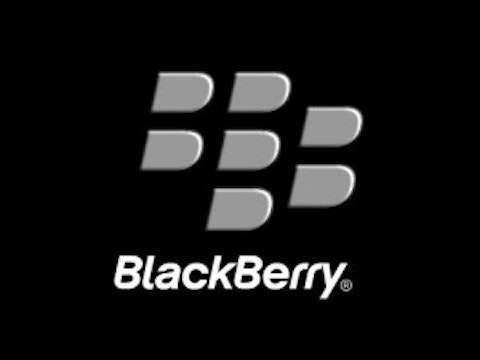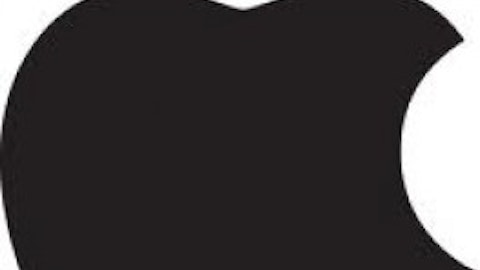
Given this general pattern, many investors are asking whether the same thing that happened to BlackBerry Ltd (NASDAQ:BBRY) will happen to Apple Inc. (NASDAQ:AAPL). This article explores whether Apple Inc. (NASDAQ:AAPL) has any advantages that may save it from BlackBerry Ltd (NASDAQ:BBRY)’s fate.
The fall of BlackBerry Ltd (NASDAQ:BBRY)
Not too long ago, BlackBerry Ltd (NASDAQ:BBRY) was a leader in the smartphone market. Not only did it sell a lot of smartphone devices, it seemingly diversified away from hardware by generating revenue from software and services.
Unfortunately, as BlackBerry Ltd (NASDAQ:BBRY)’s device sales tapered off due to competition from Apple Inc. (NASDAQ:AAPL) and other smartphone makers, so too did revenue from non-hardware segments. The lack of significant switching costs — users can switch to a different device after their initial contract expires — proved fatal for the company’s market leadership; the company is now worth only a fraction of what it was worth just five years ago.
Such a swift fall is commonplace in the tech sector, and the ubiquity of smartphone devices will only make competition more fierce. BlackBerry can probably hang on to its reduced share of the smartphone market, but it will never regain its dominance.
Is Apple Inc. (NASDAQ:AAPL) different?
Despite the recurring pattern of those at the top of the tech world falling hard, many investors are convinced that Apple Inc. (NASDAQ:AAPL) is different — and they may have a point.
Like BlackBerry, Apple Inc. (NASDAQ:AAPL) integrates its own software into its devices. The two are intertwined just like BB10 is integrated into BlackBerry’s devices. The crucial difference is that Apple has an entire ecosystem of products that interface well with one another — and not so well with non-iOS devices. For instance, iPads cannot sync all media content with an Android device, therefore iPad users are more inclined to buy an iPhone.
Apple’s iCloud service will only strengthen the degree to which the company’s products rely on one another. By synchronizing content across all of its devices, Apple creates an additional incentive for users of one Apple product to buy Apple products across all product categories.
According to a 2012 CNBC survey, half of all American households own at least one Apple product.
Moreover, CNBC found that, among households who owned an Apple device, the average household had at least three devices. This data supports the assertion that users of one Apple device follow up on incentives to buy additional Apple devices.
Even so, Apple faces fierce competition from the likes of Samsung. The short product cycle and ubiquity of smartphones, tablets, and similar devices will inevitably lead to lower returns on capital over time.
However, Apple’s robust product ecosystem, enthusiastic customer base, and unique storefront sales model may be enough to keep earning outsized profits until the next massively-innovative consumer products company comes along — which may not be for a decade or more.
Bottom line
Apple, like all other technology companies, will eventually earn lower returns on capital than it does today. The sector is simply too disruptive to allow one company to remain on top forever.
However, in all likelihood, Apple’s fall from grace will not happen any time soon. Apple’s incompatibility with non-Apple devices — a feature championed by the late Steve Jobs — gives it switching costs that rival those of Microsoft Corporation (NASDAQ:MSFT) in its heyday. As a result, investors may be well-rewarded for buying the company at less than 10 times earnings.
The article Will Apple Go the Way of BlackBerry? originally appeared on Fool.com and is written by Ted Cooper.
Ted Cooper has no position in any stocks mentioned. The Motley Fool recommends Apple. The Motley Fool owns shares of Apple. Ted is a member of The Motley Fool Blog Network — entries represent the personal opinion of the blogger and are not formally edited.
Copyright © 1995 – 2013 The Motley Fool, LLC. All rights reserved. The Motley Fool has a disclosure policy.





